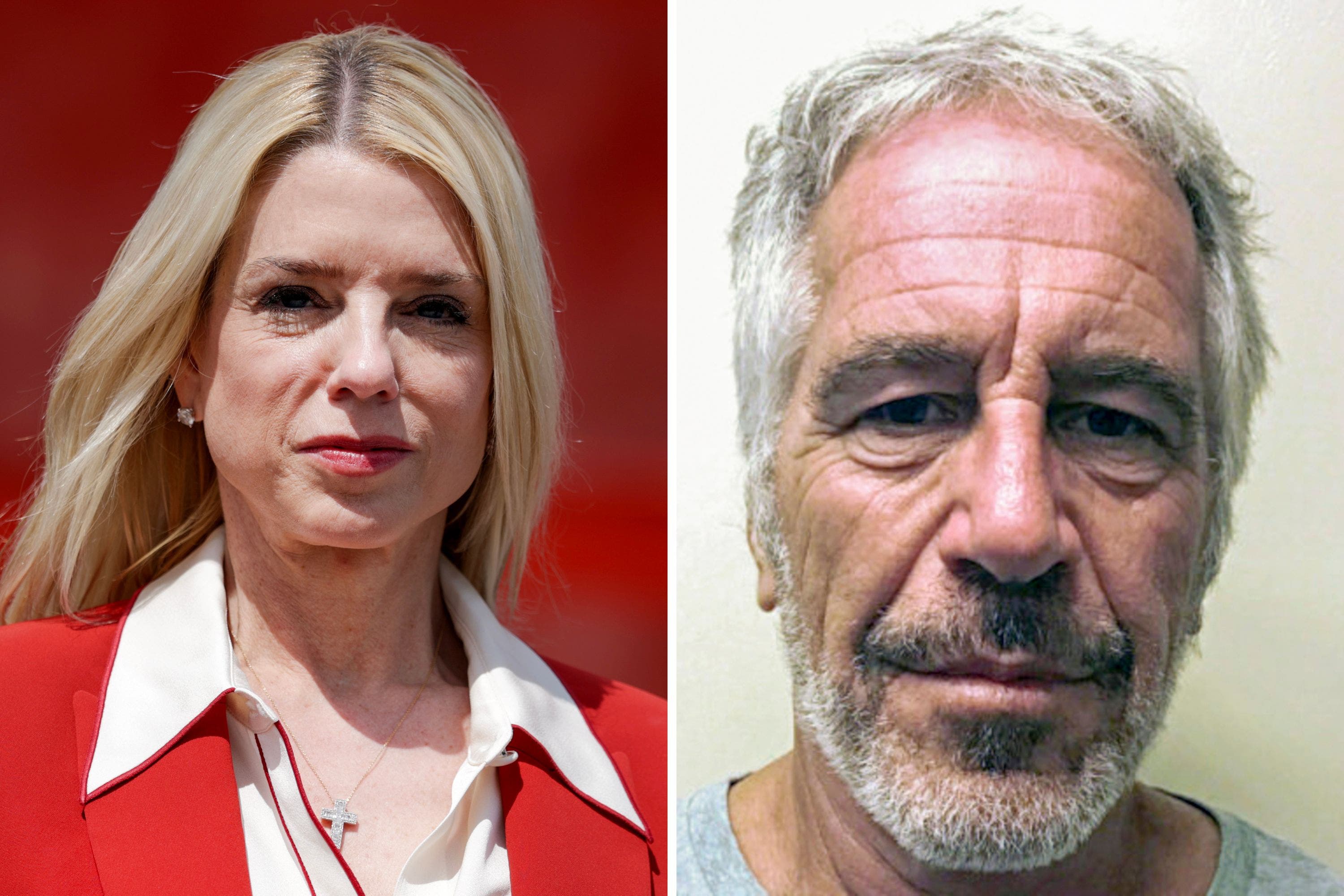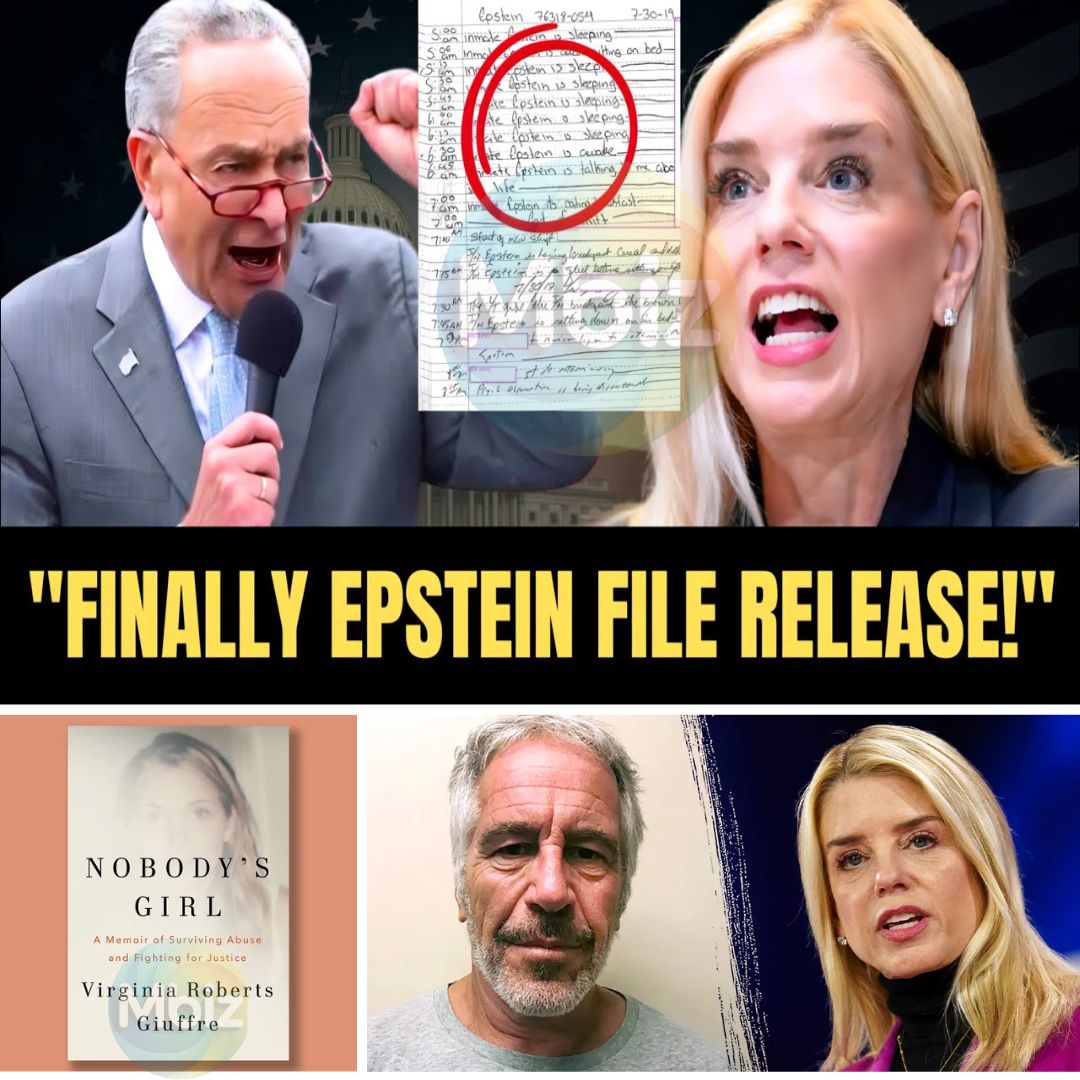In a stunning turn of events that could redefine the landscape of accountability in America, Senator Chuck Schumer has filed an explosive amendment demanding the release of all Epstein-related files. This unprecedented move threatens to unveil a trove of secrets long buried under layers of political maneuvering and corruption. For years, the Epstein files have remained shrouded in secrecy, hidden under the guise of ongoing investigations. But now, Schumer is not merely requesting transparency; he is demanding it, insisting that the American people deserve to see every name, every document, and every sordid detail.
 The stakes are monumental. Schumer’s amendment, attached to the National Defense Authorization Act, would mandate Attorney General Pam Bondi to release all documents associated with Epstein’s notorious network. In a calm yet forceful declaration, Schumer stated, “There has been so much lying, obfuscation, cover-ups. The American people need to see everything that’s in the Epstein file, and my amendment would make that happen.” This is not just a political maneuver; it is a pivotal moment in the fight for justice, challenging the very institutions that have allowed the powerful to evade accountability.
The stakes are monumental. Schumer’s amendment, attached to the National Defense Authorization Act, would mandate Attorney General Pam Bondi to release all documents associated with Epstein’s notorious network. In a calm yet forceful declaration, Schumer stated, “There has been so much lying, obfuscation, cover-ups. The American people need to see everything that’s in the Epstein file, and my amendment would make that happen.” This is not just a political maneuver; it is a pivotal moment in the fight for justice, challenging the very institutions that have allowed the powerful to evade accountability.
The timing of this amendment could not be more critical. Public frustration has reached a boiling point, fueled by years of misinformation, conspiracy theories, and a growing demand for transparency. Schumer’s call to action resonates across party lines, with Americans from all walks of life clamoring for the unfiltered truth. This is a moment where the narrative shifts dramatically; it is no longer just about Epstein, but about the systemic failures that allowed his crimes to flourish unchecked.
However, the backlash was immediate. Some Republicans labeled Schumer’s move as hostile, claiming it could derail essential negotiations. But the real question is, what does it say about those who resist transparency? If revealing the truth threatens political interests, it raises alarming concerns about priorities. Schumer’s amendment shines a spotlight on Bondi, who now faces intense scrutiny. Will she uphold the principles of transparency, or will she continue the silence that has long characterized this case?

This battle is not merely a political skirmish; it is a moral imperative. The Epstein scandal has always been a reflection of the darker facets of power in America, where wealth and connections often shield the guilty from justice. Schumer’s amendment could expose not just individuals, but the very framework that has enabled such abuses to persist for decades. The files contain not just evidence of crimes but also a detailed account of who looked away and who protected the powerful.
With the public’s demand for accountability growing stronger, the pressure is mounting on Bondi. Every statement she makes will be scrutinized, and any refusal to release the files will paint her as an obstruction to justice. The implications of this amendment are profound; it could lead to a reckoning that reshapes the conversation around power and privilege in America.
As the debate unfolds, one question looms large: who are the powerful protecting? The answer could shatter the illusion of untouchability that has long shielded certain individuals from scrutiny. Schumer’s message is clear: no more hiding behind bureaucratic red tape. The American people deserve to know the truth, and this moment demands action.
This is not just about one amendment; it is about a collective demand for justice. The fight for transparency is a right that citizens must continue to assert. As the pressure builds, it is crucial to remember that power does not check itself. It is up to the people to keep the spotlight on those who would prefer to operate in the shadows. The fight for the Epstein files is just beginning, and it will require unwavering public vigilance to ensure that the truth finally sees the light of day.





